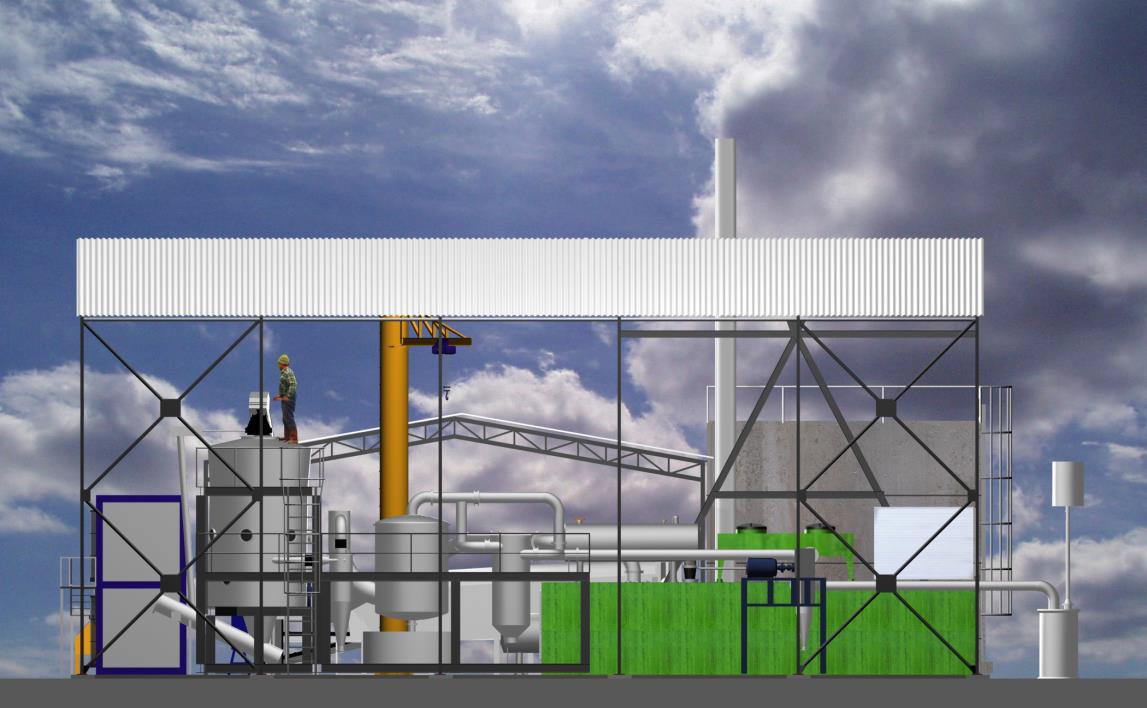Energy You Can Live With

Beltran’s biomass gasification technology converts locally-sourced organic wastes into clean, efficient energy and valuable co-products, with dramatic reductions in CO2 and pollutant emissions.
The Beltran Biomass Cogeneration System is an integrated, three-stage process that converts biomass and other organic wastes into powerful, clean-burning synthesis gas that can be used to generate energy as combined heat and power (CHP), or to produce hydrogen, biofuels and valuable industrial chemicals.
The system combines innovative enhancements to legacy technologies plus current emerging technologies configured into three core components:
• A gasification reactor vessel producing energy-rich synthesis gas (syngas) from agricultural, industrial or municipal solid wastes and other carbonaceous materials.
• A wet electrostatic precipitator to clean and condition the syngas for downstream uses.
• An internal combustion piston engine producing combined heat and power (CHP).
The durable, flexible system is closely integrated using advanced electronic controls, for optimum efficiency under diverse operating conditions. It also is easily scalable and adaptable to local installations, features low-cost operation and maintenance, and addresses several converging global challenges:
• The rising demand for and costs of all forms of energy by both developing and advanced societies around the world.
• The complex logistics and rising costs of managing and disposing industrial and municipal wastes, including toxic pollutants.
• The urgent need to develop environmentally sustainable energy alternatives to reduce emissions of carbon-based greenhouse gases and loosen dependence on costly, unpredictable supplies of imported fossil fuels.
• Achieving compliance with increasingly stringent pollution control regulations issued by governments at every level, while remaining economically viable.
The Beltran system is currently being used to process 48 tons per day of refuse-derived fuel (RDF) sourced from municipal solid waste (MSW) in a full-scale, 24-hour commercial demonstration plant, yielding 2 MW electric and 3 MW thermal energy.
